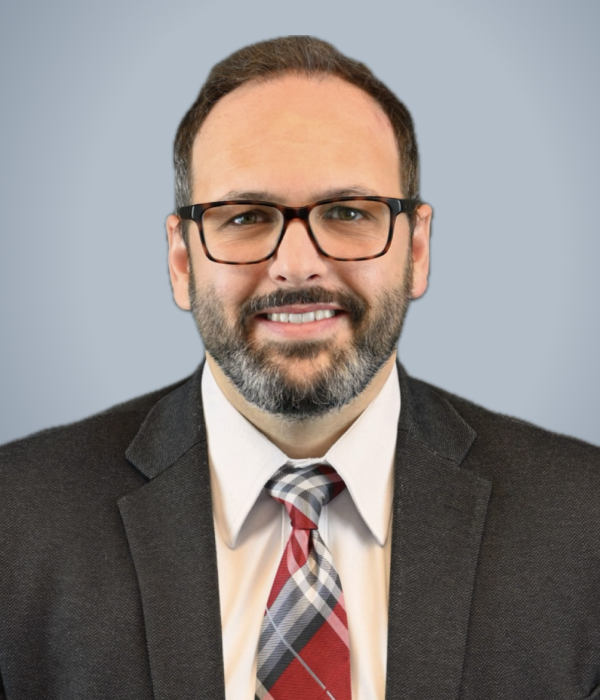
Tacoma Foreclosure Lawyer
Your home is understandably important to you and a main focus in your life. If you are behind on your mortgage payments to your lender, your homeowner status may be in jeopardy. Washington law may make it even easier for a lender to take your home because they do not need to go through a legal process. However, even though Washington is a non-judicial foreclosure state, you still have legal rights, and there is a body of law that your lender must follow.
A foreclosure attorney can assist you in exploring all possible options to prevent foreclosure, such as loan modifications, forbearance agreements, or short sales. They can also represent you in negotiations with your lender and the court if necessary. Having a legal professional on your side can make a significant difference in the outcome of your case, potentially saving your home or minimizing the financial impact of foreclosure on your future.
You are best off when you proactively seek legal advice when you begin to fall behind on your mortgage payments. You may still have options available to you early in the foreclosure process. A Tacoma foreclosure lawyer at Dickson Frohlich Phillips Burgess can help you assess your legal options, including steps that you can take to keep your home. If the lender breaks the law, your Tacoma foreclosure attorney can take legal action against it on your behalf. Even though money may be tight for you right now, it still makes sense to invest in hiring a Tacoma foreclosure attorney, so you are as informed as possible about your options and what may happen as part of the process.
Tacoma Foreclosure Guide
- How Non-Judicial Foreclosure Works in Washington
- The Foreclosure Fairness Act in Washington
- Can You Stop a Non-Judicial Foreclosure in Tacoma?
- Can You Sue a Lender for a Non-Judicial Foreclosure?
- How a Tacoma Foreclosure Attorney Can Help You
- Why Hire Dickson Frohlich Phillips Burgess for Your Foreclosure Case
- Contact a Tacoma Foreclosure Lawyer Today
How Non-Judicial Foreclosure Works in Washington

In Washington State, most home foreclosures go through a non-judicial process, meaning they occur outside the court system. This method is generally faster and less expensive than judicial foreclosure, but still follows strict legal requirements designed to protect homeowners. Here are the steps to the non-judicial foreclosure process in Washington.
Deed of Trust Requirement
Non-judicial foreclosure is only available when a deed of trust secures the loan, which includes a “power of sale” clause. This clause authorizes the trustee (a neutral third party) to sell the property if the borrower defaults.
Notice of Default
If a borrower misses payments, the lender must issue a Notice of Default first. The lender can only send this notice at least 30 days after trying to contact the homeowner to discuss alternatives such as loan modification. The Notice of Default informs the borrower of the default and the total amount they owe.
Notice of Trustee’s Sale
At least 90 days after issuing the Notice of Default, the lender (through the trustee) must record and serve a Notice of Trustee’s Sale. This notice sets a public auction date for the property, and the lender must serve it to the homeowner at least 120 days before the sale. In other words, you may still have time to stop the foreclosure.
Right to Cure the Default
Up to 11 days before the scheduled sale, the borrower has the right to cure the default, paying the delinquent amount (plus fees and interest) to stop the foreclosure process. In this way, you can put a stop to foreclosure if you catch up on your payments.
Trustee’s Sale (Foreclosure Auction)
The trustee can sell the home at a public auction if no one cures the default. The winning bidder receives a Trustee’s Deed, transferring ownership without court approval. Washington does not allow for a redemption period after a non-judicial foreclosure—once the sale is complete, the borrower generally loses all rights to the property.
Deficiency Judgments
Most non-judicial foreclosures in Washington do not allow deficiency judgments (where the lender sues for the remaining loan balance). This protection can benefit borrowers because they will not owe much money at the conclusion of the foreclosure process.
Even though the courts are not necessarily part of a non-judicial foreclosure, you still need to participate in the process. You may still have time to stop the foreclosure or work with the lender to keep your home. However, you need to be proactive during this time. If too much time passes without activity on your part, it increases the chance that you may lose your home.
Navigating non-judicial foreclosure can be complex and fast-moving. Homeowners facing foreclosure should consult an experienced attorney to explore all available options, including loan modification, mediation, or bankruptcy.
The Foreclosure Fairness Act in Washington
In Washington, theForeclosure Fairness Act (FFA)—enacted in 2011—establishes a mandatory mediation program to help homeowners and lenders explore alternatives before a non‑judicial foreclosure proceeds. In other words, the lender cannot simply take your home away from you without discussing a potential solution. You should undoubtedly take advantage of the opportunity to exchange views with your lender.
Before issuing a Notice of Default (NOD), lenders must inform homeowners about the FFA and offer free housing counseling. Homeowners are encouraged to call a statewide hotline for assistance. However, the person you speak with on the line cannot provide you with legal advice or act as your foreclosure attorney. Once a lender issues an NOD, the homeowner becomes eligible for mediation. A housing counselor or attorney must formally refer to theDepartment of Commerce’s Mediation Program.
The Department of Commerce will assign a mediator and schedule a session, typically within 45 days. The homeowner and lender usually split a mediation fee (up to $600 total), with each party paying around $200–$300. Even though you may need to spend your limited funds, mediation may be a worthwhile investment.
During mediation, both sides meet, and the lender’s representative must have the authority to negotiate and aim to reach an agreement, such as loan modification or repayment plans. Here, you can speak with the lender face-to-face to reach a solution.
If both parties reach an agreement, they will postpone foreclosure as long as they meet the terms. If mediation fails, the Department of Commerce will issue a certification, and the lender may resume the foreclosure sale. If the lender participated in bad faith, the homeowner can challenge the foreclosure in court or report the lender to the Attorney General.
Can You Stop a Non-Judicial Foreclosure in Tacoma?
You can use various methods to stop a non-judicial foreclosure, even though the process may not involve the courts. You may pause or stop the foreclosure by doing the following:
- Reinstate your loan: You can reinstate your loan by paying all missed payments and any associated fees up to 11 days before the trustee’s sale. Restarting your payments and reinstatement fees can halt the foreclosure process.
- Redeem the property: Although Washington does not allow post-sale redemption, you may still redeem your property before the sale date by paying off the full amount you owe, stopping the foreclosure.
- Enter mediation:Washington’s Foreclosure Fairness Act (FFA) mandates foreclosure mediation before a sale occurs. To access this, the FFA must assign you a housing counselor or attorney within the appropriate timeframe (typically 90 days before the sale date). During mediation, a neutral mediator helps negotiate loan modifications or payment plans.
- Challenge trustee conduct: If the trustee fails to maintain a local office or phone number, you may have grounds under state consumer protection laws to challenge the sale. The Washington Attorney General’s Office monitors trustee compliance.
- File for Bankruptcy: Filing for Chapter 7 or Chapter 13 bankruptcy triggers an automatic stay, immediately stopping foreclosure proceedings. This period provides time to restructure debt or work toward reinstating the loan.
Can You Sue a Lender for a Non-Judicial Foreclosure?
Yes, you can sue a lender for a non-judicial foreclosure, but only under specific circumstances where the lender or trustee violates the law or your legal rights. Non-judicial foreclosure is generally permitted when a deed of trust includes a “power of sale” clause, allowing a lender to foreclose without going to court. However, this process must strictly follow state laws, particularly in Washington, where the Deed of Trust Act and the Foreclosure Fairness Act establish detailed requirements.
You may have grounds for a lawsuit if the lender or trustee:
- Fails to follow proper procedures, such as giving adequate notice of default or sale
- Violates the Foreclosure Fairness Act, such as refusing to participate in required mediation in good faith
- Engages in fraud, misrepresentation, or dual tracking (promising loan modification while pursuing foreclosure)
- Fails to comply with Washington’s Consumer Protection Act by acting deceptively or unfairly during the foreclosure process
In such cases, a homeowner may sue for wrongful foreclosure, breach of contract, fraud, or violation of consumer protection laws. If successful, you may have the legal right to damages, attorney’s fees, or injunctive relief, such as halting the foreclosure or reversing the sale.
Because the legal standards are complex and deadlines are strict, it is vital to act quickly. If you believe your lender acted improperly, consult a qualified foreclosure defense attorney at Dickson Frohlich Phillips Burgess to review your case and protect your rights before the sale occurs.
How a Tacoma Foreclosure Attorney Can Help You
By consulting with a foreclosure lawyer early in the process, you can proactively address any issues and work towards a favorable resolution. A foreclosure attorney can be an essential ally when you are facing the loss of your home. Whether you are dealing with a non-judicial foreclosure in Washington or a judicial foreclosure elsewhere, an experienced attorney can help protect your rights, explore alternatives, and potentially stop or delay the foreclosure process.
First and foremost, a foreclosure lawyer will review your loan documents and the lender’s actions to ensure they have complied with all legal requirements. Lenders or trustees often fail to provide proper notices, skip required mediation steps, or violate consumer protection laws. Your attorney can identify and use these violations to challenge the foreclosure or negotiate a better outcome.
An attorney can also help you understand your legal options, including loan modification, repayment plans, short sales, or filing for bankruptcy. For instance, filing for Chapter 13 bankruptcy immediately triggers an automatic stay, which halts foreclosure and gives you time to catch up on missed payments.
If mediation is available, as it is under Washington’s Foreclosure Fairness Act, your attorney can
represent you during these sessions, ensuring the lender negotiates in good faith. They can discuss your situation with the lender in the hopes of reaching a solution. Should litigation become necessary, a foreclosure attorney can file a lawsuit for wrongful foreclosure, fraud, or violations of the Washington Consumer Protection Act, seeking to stop the foreclosure or recover damages.
Finally, a foreclosure lawyer provides peace of mind during a highly stressful time. They can explain your rights, avoid scams, and navigate a complex legal process with confidence. Acting early gives your attorney the best chance to help you save your home or limit your financial loss.
Why Hire Dickson Frohlich Phillips Burgess for Your Foreclosure Case
Dickson Frohlich Phillips Burgess is a trusted choice for handling foreclosure cases in Washington. With deep experience in real estate and foreclosure law, their attorneys understand the nuances of non-judicial foreclosure and how to protect homeowners’ rights. The firm offers practical, results-oriented strategies tailored to your unique financial situation—whether pursuing loan modification, mediation under the Foreclosure Fairness Act, or legal action for wrongful foreclosure. Their team is known for responsive service, clear communication, and aggressive advocacy. If you are facing foreclosure, Dickson Frohlich Phillips Burgess can guide you through the process and fight to protect your home and future.
Contact a Tacoma Foreclosure Lawyer Today

If you are facing foreclosure in Tacoma, contact the experienced Tacoma real estate attorneys at Dickson Frohlich Phillips Burgess today. We understand how overwhelming foreclosure can be and are here to help you explore all your options, from loan modifications and mediation to litigation and bankruptcy protection. Our dedicated team of foreclosure lawyers will fight aggressively to protect your home and financial future while guiding you every step of the way.
Call us now at (253) 572-1000 for a free consultation and take the first step toward stopping foreclosure and securing peace of mind. Your home matters—let us help you keep it.
Client Testimonial
“I have never been so frustrated trying to work with my bank. I hired Dickson Law Group to represent me and in the manure of just a couple months he was able to get everything fixed. Now due to their efforts my family and I were able to buy a new house and we could not be happier. I highly recommend Dickson Law Group and if I ever need a lawyer again they will be my first call.” – Jeremy Haskins (Google Review)























